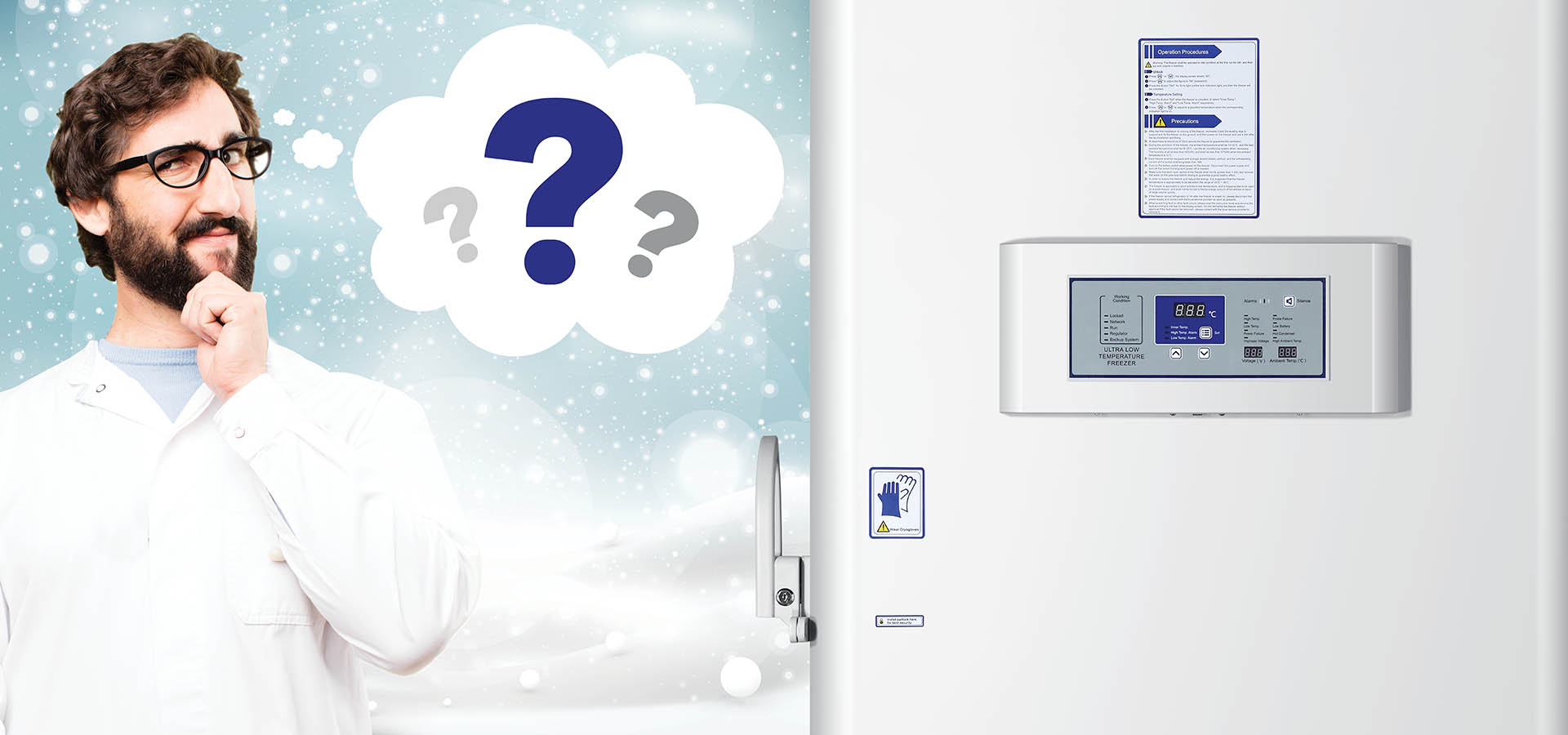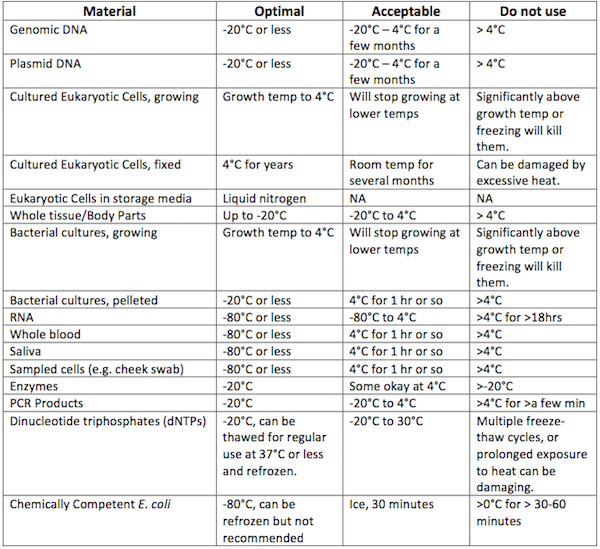What Cold Storage is Best for Your Biological Samples?

Biological research is driven by the repetitive collection of samples, which in turn are preserved for later examination. The preservation of biological samples is essentially the forced delay of degradation of the sample so that it may be used later for various analyses. The short or long term means of sample preservation is, therefore, a crucial aspect of biological research.
Biological samples can be stored in 4 different storage units; Refrigerators, Freezers, Ultra-Low Freezers, and Cryogenic Freezers; each of which maintains the temperature within a specific controlled range(1). The means of cold storage required is based on the biological material that is to be stored, the solution it is suspended in, the sample’s intended use, and how long the material will be stored(4).
This then begs the question, what do each of the above-mentioned storage options provide and which is best suited for my research and storage of my samples?
Standard Refrigeration (2-8°C)
Starting at the warmer end of the cold storage spectrum; standard refrigeration is ideal for short term storage of samples, and samples that are sensitive to multiple freeze-thaw cycles. Good examples of these samples include reagents like antibodies and buffers (1).
When actively using your reagents, it is essential to keep them refrigerated to decrease the likelihood of denaturing and microbial contamination. In situations where samples or reagents are not required within a short timeframe, these can be aliquoted and frozen (1). These can then be used when required and will also reduce the number of freeze-thaw cycles the samples are exposed to, therefore extending the availability of your reagents (1).
One thing to consider is that all reagents have a specified shelf life, and it is important to store them as indicated by the manufacturer. To extend the storage time of your biological samples, you can utilize standard freezer temperatures, however, it is advised that both refrigeration and standard freezer temperatures are good for short term storage of your samples.
Standard Freezer Temperature (-20°C)
Standard freezer temperatures are widely used for short-term storage of biological samples however the stability of your samples and reagents will determine at what temperature they should be stored. In most cases -20°C is an ideal temperature for the short-term storage of samples and reagents that are unstable at higher temperatures (1). Genomic DNA and Plasmid DNA are good examples of biological samples that can be stored at -20°C for short periods, however, storage at lower temperatures is recommended for long-term storage (1, 2). Where samples are not suspended in a stabilizing solution, it is also recommended that they are stored at lower temperatures (1, 3).
Ultra-Low (-80°C)
Ultra-low temperature freezers are the go-to long-term biological sample storage solution. This is because these temperatures (-40°C to -80°C) prevent the degradation of various biological molecules, including nucleic acids and proteins.
Biobanking utilizes ultra-low temperatures for long-term mass storage of biological samples as these temperatures have been confirmed to maintain the viability of biological samples through long-term storage. While this is ideal, it is important to consider what methods you use to get your samples to these ultra-low temperatures and how you thaw your samples as this will influence the period your samples are viable. This is referred to as a freeze-thaw protocol.
Cryogenic (-150°C to -190°C)
The lowest temperatures in the cold storage spectrum are referred to as cryogenic. These are temperatures as low as between -150°C to - 190°C(1). At these temperatures, all biological processes cease and the potential of degradation of samples becomes low to none (1). Many consider cryogenic storage as the pinnacle of long-term storage of biological samples as these can be stored for the longest periods (1). This option is great for samples that are no longer required for research but kept for later reference and use.
So what cold storage option best suits your needs?
The below table is a great guideline of the temperatures various biological samples should be kept at, put together and made available by Gina Riggio of Bite-Size Bio.
Table 1: Storage temperature guide for a list of biological samples

Courtesy: bitesizebio: http://bitesizebio.com/9047/a-beginners-guide-to-storing-biological-materials/
Cold storage is a massive industry from a selling, research, and service perspective, and the brand options are endless. Choosing the correct cold storage option from the most reliable brands is essential for the successful and efficient storage of your biological samples and plays a pivotal role in the research process.
You should not have to worry about the integrity of your samples and therefore reliability and peace of mind are crucial when it comes to storage of samples in biological research.
References
- Anon, November 9, 2018, Brooks Life Sciences, 21/06/2019, https://www.brookslifesciences.com/blog/safe-storage-temperatures-biological-materials
- Gina Riggio, July 30, 2012, A Beginners Guide to Storing Biological Material, Bite Size Bio, 21/06/2019, https://bitesizebio.com/9047/a-beginners-guide-to-storing-biological-materials/
- Kelly Wright, September 13, 2017, Top 5 Tips for Safely Storing Biological Samples, MadgeTech We Build Data Loggers, http://blog.madgetech.com/top-5-tips-for-safely-storing-biological-samples
- Daniela Marino, June 3, 2013, Best Practices for Storing Biological Samples in ULT Freezers, Biocompare The Buyer’s Guide for Life Scientists, https://www.biocompare.com/Bench-Tips/137747-Best-Practices-for-Storing-Biological-Samples-in-ULT-Freezers/
- Keigan Docherty, Product Manager - Instruments















Comments